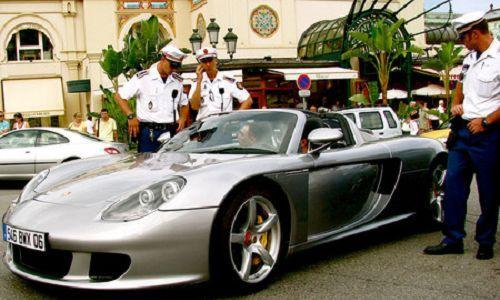Some men, it seems, can’t get enough of luxury goods like European sports cars or designer jeans. Now, scientists have figured out why: testosterone. A new study shows, testosterone has a measurable effect on a man’s preference for brands that are considered to be status symbols.
Washington (ISJ) – Some men, it seems, can’t get enough of luxury goods like European sports cars or designer jeans. Now, scientists have figured out why: testosterone.
A new study shows, testosterone has a measurable effect on a man’s preference for brands that are considered to be status symbols. For instance, a man with a higher level of testosterone in his body will be more likely than a man with lower testosterone levels to prefer a pair of Calvin Klein jeans over a pair of Levi’s.
That makes sense, says Caltech’s Colin Camerer, one of the authors of the study that appears in the latest edition of Nature Communications, because one of the primary functions of testosterone is to generate both status-seeking and status-protecting behaviours.
“In the animal kingdom, testosterone promotes aggression, but the aggression is in service of status,” says Camerer, the Robert Kirby Professor of Behavioural Economics and the T&C Chen Centre for Social and Decision Neuroscience Leadership Chair. “A lot of human behaviours are repurposed behaviours seen in our primate relatives. So, here, we’re replacing physical aggression with a sort of ‘consumer’ aggression.”
The study—conducted by researchers from Caltech, the Wharton School of the University of Pennsylvania, University of Western Ontario, and ZRT Laboratory—gets to the biological heart of what we call conspicuous consumption, the human practice of acquiring and showing off luxury goods and services to increase one’s social status. Camerer likens the costs of this behaviour to the cost and weight of the elaborate tails carried around by male peacocks.
“If it didn’t need to attract mates, a peacock would be better off without its tail. It would be easier for the peacock to escape from predators and easier for it to find food if it wasn’t carrying that tail around,” he says. “In biology, that’s known as costly signalling. A human male would probably be better off not spending $300,000 on a car but, by buying that car, he’s showing people that he’s wealthy enough that he can.”
The study included 243 male volunteers between the ages of 18 and 55 who were randomly selected to receive a dose of testosterone gel or placebo gel that would absorb through their skin. They were sent home and asked to return to the lab about four hours later, when testosterone levels in their blood would be near peak. Upon returning, they participated in tasks designed to gauge their preferences for different types of goods.
The data the researchers collected during this task showed, the men who received a dose of testosterone had a stronger preference for the luxury brands than did the men who received the placebo.
The second task was designed to tease apart testosterone’s effect on the desire for luxury good from other potential effects, like an increased desire for high-quality goods or for goods that evoked a sense of power.
The data from this task—as with the first task—showed, men who received a dose of testosterone had a stronger preference for luxury goods than men who received the placebo. There was no corresponding increase in preference for goods that were advertised as powerful or higher in quality.
“In our closest animal kin, males spend a lot of time and energy fighting to establish dominance. We do, too, but our weapons are what we wear, drive, and live in rather than claws, fists, and muscles,” Camerer says.


